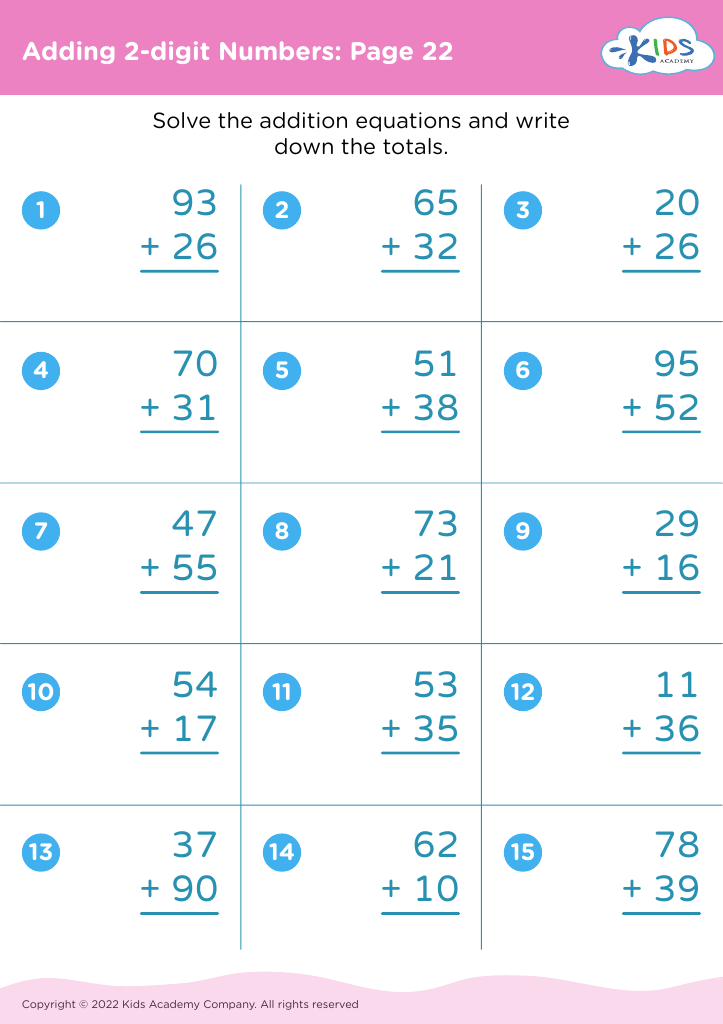Develop counting skills Addition Worksheets for Ages 7-8
5 filtered results
-
From - To
Boost your child's numeracy prowess with our thoughtfully designed Addition Worksheets for Ages 7-8. Our engaging activities focus on developing counting skills and laying a strong foundation in basic arithmetic. Through fun and interactive exercises, children will enhance their ability to add numbers seamlessly, reinforcing classroom learning and supporting independent practice. Perfect for blending learning with play, our worksheets cater to various learning styles, ensuring every child can thrive and excel. Discover the joy of learning and watch your kid's confidence grow as they master addition with our expert-crafted resources! Join now and add a world of possibilities to their academic journey.
Developing counting and addition skills in children aged 7-8 is fundamental for several key reasons. At this critical age, children's brains are especially receptive to learning foundational math concepts that will support their future education. Counting and basic addition are crucial blocks in the larger structure of mathematics, which extends to more complex operations such as subtraction, multiplication, division, and eventually algebra and calculus.
Firstly, these skills enhance a child’s problem-solving abilities, reasoning, and logical thinking, which are essential competencies both in academic settings and everyday life. For instance, understanding addition prepares children for tasks like managing money or tracking time. Secondly, early proficiency in math has been linked to higher academic achievement in later grades; children who grasp these concepts early often show improved performance in school overall.
Engaging in counting and addition activities helps build confidence and reduces math anxiety, making children more eager to tackle advanced mathematics and STEM subjects in the future. It also supports cognitive development including memory, attention, and executive functioning skills.
From a parent or teacher's perspective, fostering these skills at an early age is an investment in the child's educational and personal growth, equipping them with the tools needed for lifelong learning and success. Encouraging a strong mathematical foundation helps children develop a growth mindset, cultivating a belief that they can improve through effort and perseverance.


























